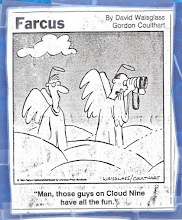Recently.
The New York Times had an interesting article by Matthew Zapruda, Understanding Poetry Is More Straightforward Than You Think. I found it very interesting as one who often struggles with the topic. Points I found enlightening were:
1. “Like classical music, poetry has an unfortunate reputation for
requiring special training and education to appreciate, which takes readers
away from its true strangeness, and makes most of us feel as if we haven’t
studied enough to read it.”
2. “The art of reading poetry doesn’t begin with
thinking about historical moments or great philosophies. It begins with reading
the words of the poems themselves.”
3. “The mere exercise of getting as deeply into the words as
possible shows them that meaning and possibility come from this act — not from
a search for an interpretation, often one someone else has already made.”
4. “Coming upon a word, having it rise up out of the preconscious,
intuitive dream-state and into the poem, either to begin or somewhere along the
way or even, blissfully, at the end, is the special reward of being a poet, and
a reader of poetry. By being placed into the machine of a poem, language can become
alive again.“
5. “Somewhere, in every poem, there are words that shine forth,
light up, almost as if plugged in. This is what poetry can do for language, and
for us.”
I
sent the article to a poet friend of mine and asked him what he thought of it. This is how he responded in
part:
“As
W.B. Yeats wrote in a letter to a friend very late in his life:
"Truth cannot be told, but it can be embodied." To ask me
what the "meaning" of a great poem is, or Hamlet is, or Beethoven's
last piano sonata is, or Edward Weston's "Pepper No. 30" is, would be
like asking me what the meaning of a mystical experience is. The central
failure of people to understand certain poems of Emily Dickinson, for instance,
is not a failure of intellect or learning, but a failure in the depth and
breadth and intensity of their living.
Believe me, answering your question truly would engage all that is most important to me, all that I have learned about what is most important. And it would not involve conceptual description or definition so much as why and in what way all concepts and discursive writing are intrinsically and inevitably false. Ah, you are stirring the ocean in asking me that question!. . . . But then, your blog bespeaks a taste for the open sea.”
Believe me, answering your question truly would engage all that is most important to me, all that I have learned about what is most important. And it would not involve conceptual description or definition so much as why and in what way all concepts and discursive writing are intrinsically and inevitably false. Ah, you are stirring the ocean in asking me that question!. . . . But then, your blog bespeaks a taste for the open sea.”
Check out
Zapruder’s piece and use your life experiences to read a poem or two
occasionally. If it is a good poem, you
will find that word or words and they will add depth to your life!!


No comments:
Post a Comment